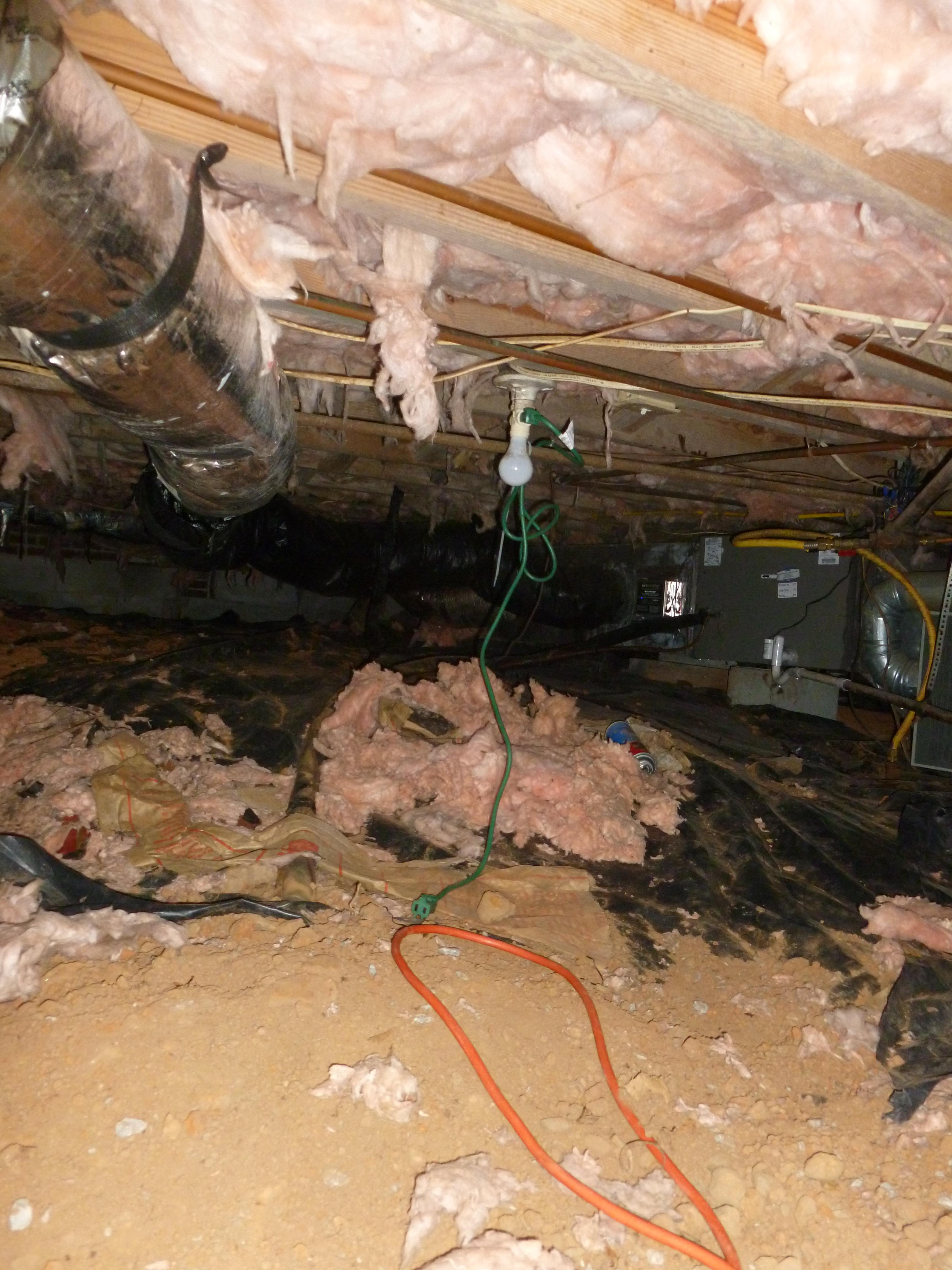Sapphire1166
New Member
Let me preface this by saying I'm new to plumbing. I'm not even a DIYer. I'm just a homeowner that hired a company 8 months ago to install a sump pump in my crawlspace, so please go easy on my lack of knowledge.
Hired a licensed "professional" foundation company for an inspection for a house I was purchasing and was told we had some crawlspace moisture and needed a french drain and sump pump. Paid nearly $3k for it. A week after they dug the drain and installed the sump pump, my husband noticed that the pump was not even plugged into anything. Called the company and they came in and installed an attachment to our crawlspace light and assured us that everything was operational.
Flash forward to a few weeks ago when our area got super heavy rains. Sump pump did not turn on (no loss of power- it just never worked) and our sunken finished basement area (about 700 sq ft) next to our crawlspace flooded and we ended up with 3 inches of water. Original company refused to answer email or phone calls, so we got another company to come out to assess the sump pump.
New company explained that the sump pump installed was a standard low-grade pump you can purchase at Lowe's. Not a great thing, considering we spent so much money, but our estimate from the old company was very vague and did not specify a specific pump. New company also pointed out there was no check valve on the sump pump, and that there should be a dedicated electrical outlet for the pump. Old company had attached an outlet to our light and run an extension cord. New company said that's not to code any way, shape, or how and sump pumps should not be run with extension cords.
Before I start playing hard ball with the old company to fix these issues, or have the new company fix them and work on compensation from the old company, would like to know industry norms for sump pump installation. New company said that a check valve should ALWAYS be installed on a sump pump and that anyone who installs these for a professional company should have done so. Internet search says there "should" be one, but it's not imperative. Would I be in the right for demanding one be installed by new company?
Thanks in advance for any advice to a novice like me.
Hired a licensed "professional" foundation company for an inspection for a house I was purchasing and was told we had some crawlspace moisture and needed a french drain and sump pump. Paid nearly $3k for it. A week after they dug the drain and installed the sump pump, my husband noticed that the pump was not even plugged into anything. Called the company and they came in and installed an attachment to our crawlspace light and assured us that everything was operational.
Flash forward to a few weeks ago when our area got super heavy rains. Sump pump did not turn on (no loss of power- it just never worked) and our sunken finished basement area (about 700 sq ft) next to our crawlspace flooded and we ended up with 3 inches of water. Original company refused to answer email or phone calls, so we got another company to come out to assess the sump pump.
New company explained that the sump pump installed was a standard low-grade pump you can purchase at Lowe's. Not a great thing, considering we spent so much money, but our estimate from the old company was very vague and did not specify a specific pump. New company also pointed out there was no check valve on the sump pump, and that there should be a dedicated electrical outlet for the pump. Old company had attached an outlet to our light and run an extension cord. New company said that's not to code any way, shape, or how and sump pumps should not be run with extension cords.
Before I start playing hard ball with the old company to fix these issues, or have the new company fix them and work on compensation from the old company, would like to know industry norms for sump pump installation. New company said that a check valve should ALWAYS be installed on a sump pump and that anyone who installs these for a professional company should have done so. Internet search says there "should" be one, but it's not imperative. Would I be in the right for demanding one be installed by new company?
Thanks in advance for any advice to a novice like me.







